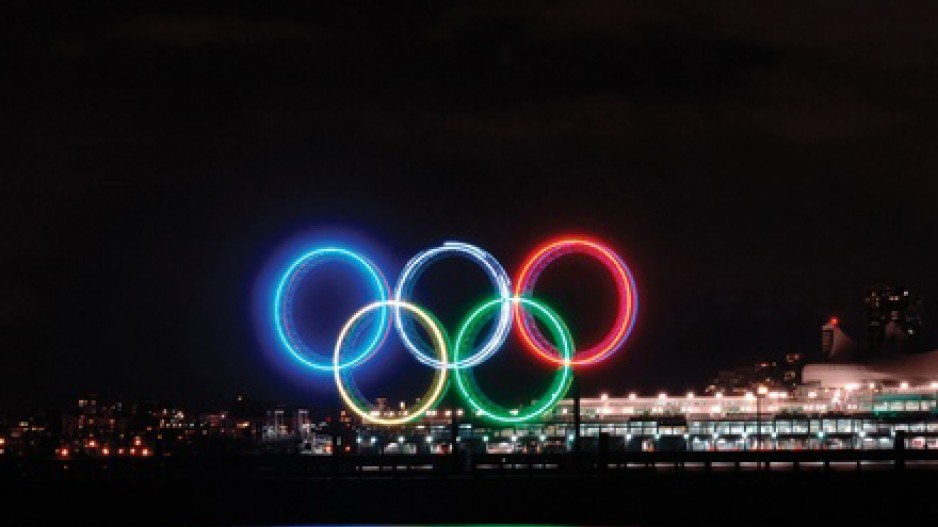The Canadian Olympic Committee’s bid to bring another Winter Olympics to Vancouver is over.
The BC NDP government announced late Thursday morning that it was declining to support the bid, which was sold as Indigenous-led, because of the COC’s partnership with Musqueam, Squamish, Tsleil-Waututh and Lil’Wat leaders.
Federal sport hosting policy states that Ottawa does not underwrite major event deficits, a responsibility left to the host province. Without Victoria acting as guarantor to the International Olympic Committee, the bid is over.
"I know that the prospect of hosting these Games is exciting to athletes and sports fans. However, the Province has the responsibility to weigh the benefits with the costs and possible risks of the project,” said Tourism, Arts, Culture and Sport Minister Lisa Beare in a news release. “There are billions of dollars in direct costs, and potential guarantee and indemnity liability risks on this project that could jeopardize our government's ability to address pressures facing British Columbians right now. Based on careful consideration, the Province is declining to support a bid.”
Federal Sport Minister Pascal St-Onge said the Liberal government respected the local decision, but would look for other ways to fulfill Truth and Reconciliation calls to action.
“For a bid of this kind to go forward, all levels of government need to be in favour,” St-Onge said.
Beare, who replaced Melanie Mark last month, noted the province is already supporting the 2025 Invictus Games and 2026 FIFA World Cup. Mark had demanded a mini business plan in mid-August, including details on whether all the parties in the bid would share costs and risks of such an event. Mark had told COC president Tricia Smith not to assume provincial support. A source has confirmed that what the COC delivered did not answer all of Mark’s questions.
Smith did not immediately respond for comment, but the COC issued a statement that said the COC feasibility team had been informed earlier this week of the B.C. government decision.
“We are taking time to process this information today,” the statement said. COC, Canadian Paralympic Committee and Four Host First Nations leaders are expected to respond Friday morning.
At a Greater Vancouver Board of Trade luncheon, Musqueam Chief Wayne Sparrow said he was disappointed by the way the province told the Four Host First Nations. He said “it sets us back a couple of steps” and shows “how far we have” to go with reconciliation.
Vancouver International Airport Authority CEO Tamara Vrooman was also disappointed, saying that she was looking forward to the contribution the Games would have made.
The decision came less than two weeks after the Vancouver civic election. Both outgoing Mayor Kennedy Stewart and incoming Mayor Ken Sim supported another Games. Third-place finisher Colleen Hardwick of TEAM for a Livable Vancouver promised a plebiscite on the bid. In 2003, a majority of voters supported the 2010 concept. However, the IOC earlier this year told any bidder to avoid a public vote in 2022. Four years ago, Calgary voters rejected a bid for the 2026 Games.
Hardwick was pleased the provincial government approached the decision in a more-reasonable fashion than her colleagues on city council.
“They did go through a balanced exercise of looking at the pros and cons, didn't respond just to the boosterism or to the fact that it was the First Nations bid, but rather, what its impact would be overall, and the risks that would be taken and looking at the larger economy,”Hardwick said. “So that was a responsible thing for the provincial government to do. When the city did it, through staff, the electeds overruled it. So this shows to me that the provincial government has taken a much more mature and balanced approach to assessing the opportunity.”
The 2030 bid was originally hatched by former Vancouver 2010 CEO John Furlong at a February 2020 Greater Vancouver Board of Trade breakfast to celebrate the 10th anniversary of the 2010 Games. The pandemic delayed the bid exploration until fall 2021, when Stewart, Whistler Mayor Jack Crompton and leaders of the Four Host First Nations announced a memorandum of agreement to explore the bid. The COC came on board in early 2022 and acted as the de facto bid committee and liaison with the International Olympic Committee.
Salt Lake City, the 2002 host, and Sapporo, Japan, the 1972 host, are also exploring bids. The IOC was expected to take official applications and begin closed-door negotiations later this fall, and require completed bid questionnaires in early 2023, in anticipation of a decision at the annual general meeting in late May 2023. However, that was delayed to September or October 2023.
The COC estimated Vancouver 2030 would cost $4 billion, including at least $1 billion from taxpayers. It proposed reusing most of the Vancouver 2010 venues in Vancouver, Richmond and Whistler, with the exception of the Agrodome for curling, Hastings Racecourse for big air skiing and snowboard jumping and Sun Peaks resort near Kamloops for snowboarding and freestyle skiing.
The 2010 Games are believed to have cost $8 billion, all-in. The true costs are unknown, because the Auditor General never did a post-Games study, the organizing committee was not subject to the freedom of information law and its board minutes and financial files won’t be open to the public at the City Archives until fall 2025.
—with files from Kirk LaPointe




